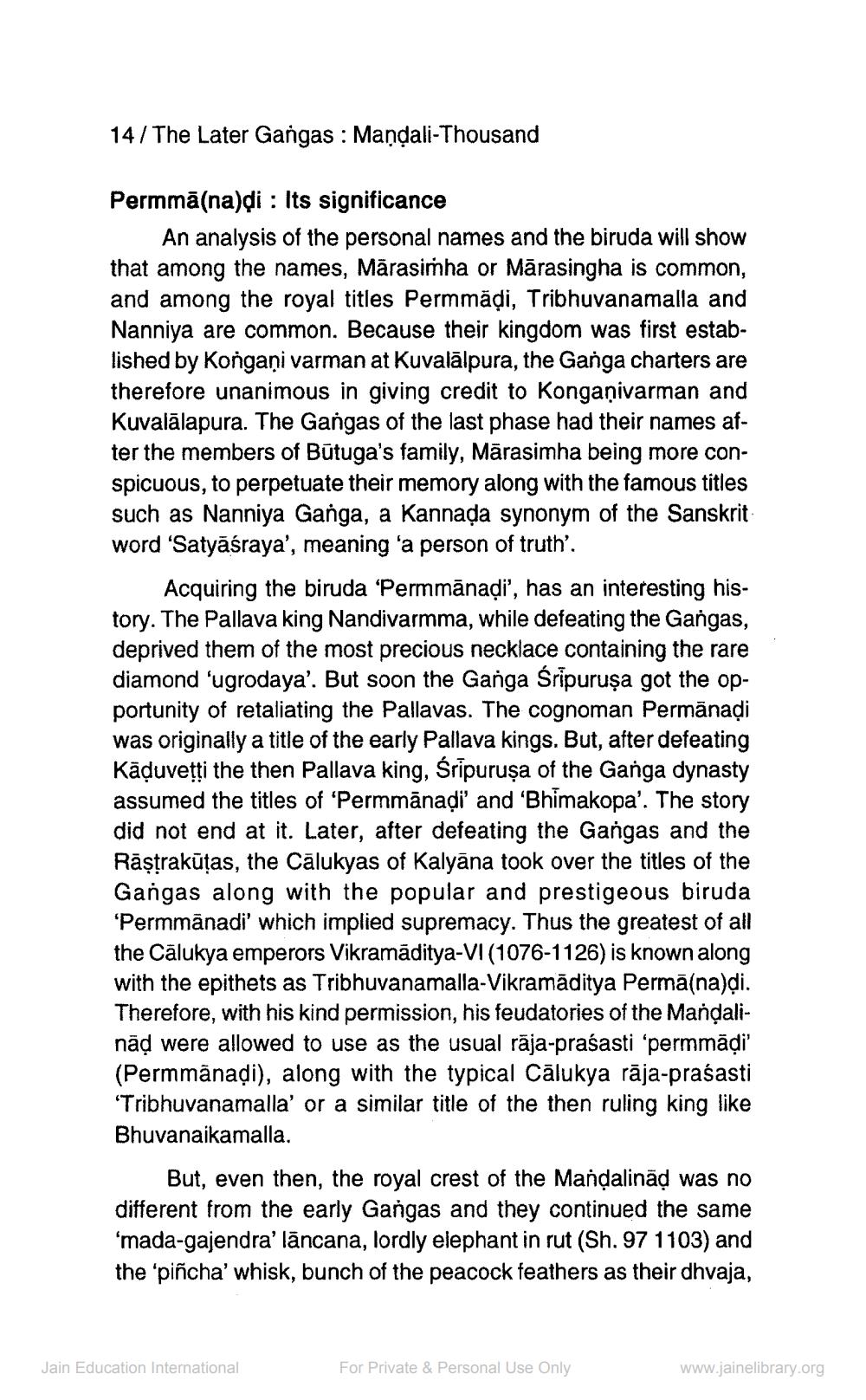________________
14/The Later Gangas: Mandali-Thousand
Permmā(na)ḍi: Its significance
An analysis of the personal names and the biruda will show that among the names, Mārasimha or Mārasingha is common, and among the royal titles Permmäḍi, Tribhuvanamalla and Nanniya are common. Because their kingdom was first established by Kongaņi varman at Kuvalalpura, the Ganga charters are therefore unanimous in giving credit to Kongaṇivarman and Kuvalālapura. The Gangas of the last phase had their names after the members of Būtuga's family, Mārasimha being more conspicuous, to perpetuate their memory along with the famous titles such as Nanniya Ganga, a Kannada synonym of the Sanskrit word 'Satyāśraya', meaning 'a person of truth'.
Acquiring the biruda 'Permmānaḍi', has an interesting history. The Pallava king Nandivarmma, while defeating the Gangas, deprived them of the most precious necklace containing the rare diamond 'ugrodaya'. But soon the Ganga Śripuruşa got the opportunity of retaliating the Pallavas. The cognoman Permānaḍi was originally a title of the early Pallava kings. But, after defeating Kāḍuveṭṭi the then Pallava king, Śripuruşa of the Ganga dynasty assumed the titles of 'Permmānaḍi' and 'Bhimakopa'. The story did not end at it. Later, after defeating the Gangas and the Rāṣṭrakūtas, the Calukyas of Kalyāna took over the titles of the Gangas along with the popular and prestigeous biruda 'Permmānadi' which implied supremacy. Thus the greatest of all the Calukya emperors Vikramaditya-VI (1076-1126) is known along with the epithets as Tribhuvanamalla-Vikramaditya Permā(na)ḍi. Therefore, with his kind permission, his feudatories of the Manḍalināḍ were allowed to use as the usual rāja-prasasti 'permmāḍi' (Permmānaḍi), along with the typical Cālukya rāja-prasasti 'Tribhuvanamalla' or a similar title of the then ruling king like Bhuvanaikamalla.
But, even then, the royal crest of the Mandalinaḍ was no different from the early Gangas and they continued the same 'mada-gajendra' lancana, lordly elephant in rut (Sh. 97 1103) and the 'pincha' whisk, bunch of the peacock feathers as their dhvaja,
Jain Education International
For Private & Personal Use Only
www.jainelibrary.org




